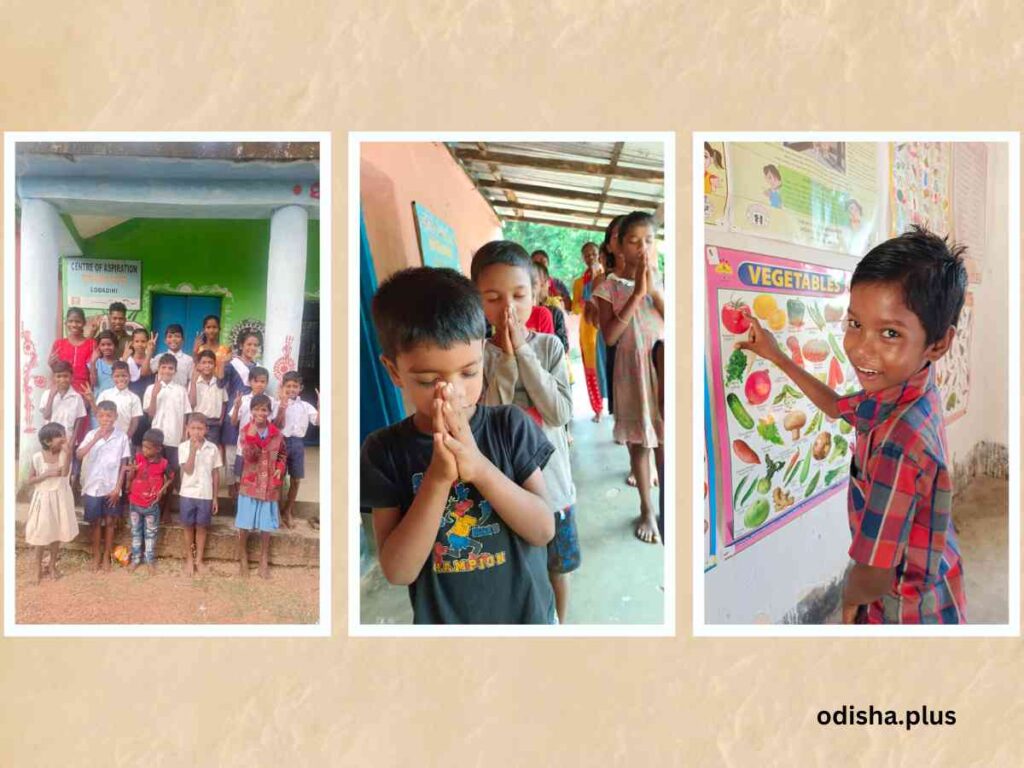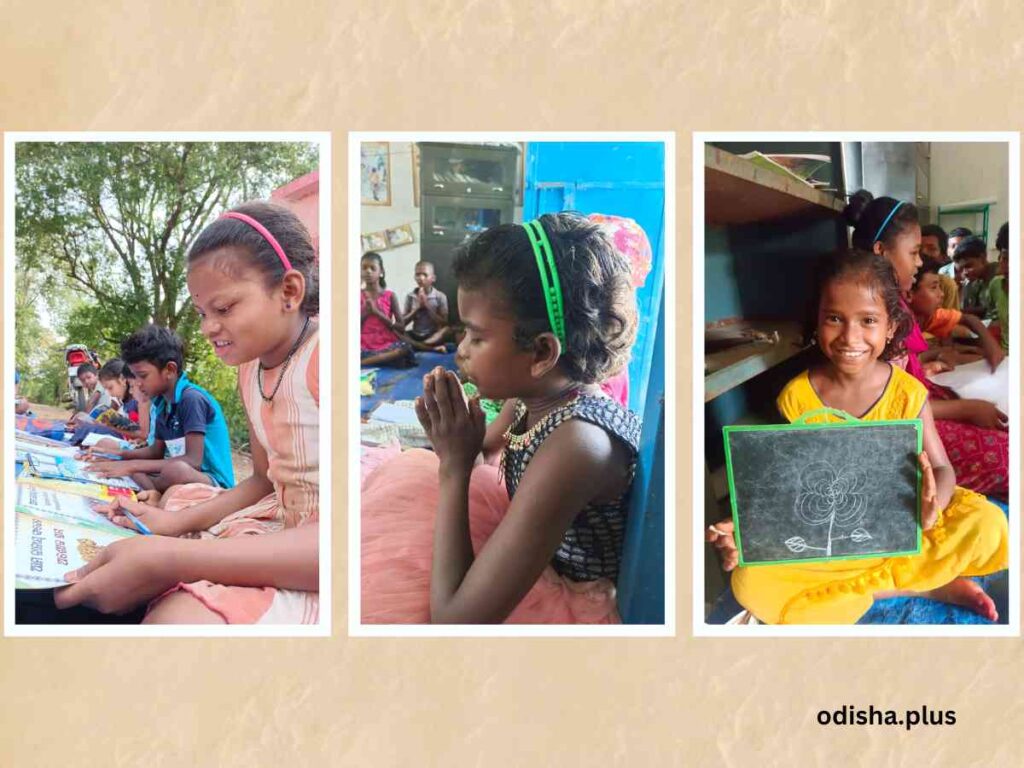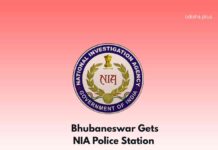The narrative of Sikshasandhan, an education-based NGO in Bhubaneswar, centers around its commitment to tribal and alternative schooling, as well as the promotion of indigenous languages
Bhaskar Parichha
 When Sikshasandhan was founded, its originators recognized the profound impact that education can have on society. With many of them having hands-on experience in the educational sector, they aimed to gain a deeper insight into educational challenges by engaging directly with marginalized children. Sikshasandhan always holds the belief that education is essential for empowering tribal communities and other disadvantaged groups.
When Sikshasandhan was founded, its originators recognized the profound impact that education can have on society. With many of them having hands-on experience in the educational sector, they aimed to gain a deeper insight into educational challenges by engaging directly with marginalized children. Sikshasandhan always holds the belief that education is essential for empowering tribal communities and other disadvantaged groups.
Since its establishment in 1995, Sikshasandhan has dedicated itself to ensuring the Right to Education for all children, particularly those from tribal and marginalized backgrounds. The organization focuses on innovative content, teaching methods, and processes to provide meaningful education.
Implementing RtE Act
While Sikshasandhan primarily functioned as a resource center, with limited field intervention, it launched Alternative Education Centres (AECs) for tribal children, which were instrumental in developing tailored curricula, promoting education in the mother tongue, advocating for necessary policy reforms at the government level, and fostering research and publications in the field of education. That was in 1998.
A significant opportunity arose with the introduction of the Right to Education (RtE) Act in 2009. This prompted Sikshasandhan to shift its focus and begin working with 64 government schools located in a remote tribal region of Mayurbhanj district. The primary aim was to ensure the effective implementation of the RtE at the grassroots level while advocating for policy changes. During this time, the organization expanded its field operations to six gram panchayats (GPs) within the Kaptipada Block of Mayurbhanj, supported by funding partners such as Welthungerhilfe, CRY, Oxfam India, Terre des hommes from Germany, and the Sir Dorabji Tata Trust.
From that point on, there was no turning back.

During the years 2015-16, Sikshasandhan embarked on a mission in the Rayagada district as part of the South Odisha Initiatives by Tata Trusts. This initiative encompassed over 60 schools and more than 40 Anganwadi centers located in the Muniguda and Bissam Cuttack blocks. Furthermore, Sikshasandhan established a dedicated resource team aimed at improving the quality of elementary education within this project.
Dynamic Resource Center
It also launched a ‘School and Community Science Program’ in South Odisha, collaborating with local organizations like Kartabya, SebaJagat, and Jagruti in Kalahandi, Rayagada, and Kandhamal districts, with support from Tata Consultancy Service (TCS) and Tata Trusts. The program engaged 200 Government Upper Primary and Secondary schools, directly implemented in Muniguda and Bissamcuttack, while partnering with local organizations in Thuamul Rampur, Lanjigarh, and Tumudibandh.
Sikshasandhan has been advocating for a holistic approach to education that encompasses both formal and informal methods, as well as alternative and widespread educational practices. Its mission is to spread knowledge among individuals in the lower strata of society, promoting human growth and enhancing their skills.
Over the years, it has earned a reputation as a dynamic resource center and has methodically cultivated its expertise in training and publishing, creating, teaching and learning materials in various local languages. The organization reaches a wider audience through its publications and offers training to teachers involved in its initiatives, as well as those affiliated with other organizations and government bodies.
Promoting an educational approach inspired by the experiences of the poor and marginalized, addressing their challenges and aspirations has been one of the avowed goals of Sikshasandhan. It envisions a society where everyone can learn and develop with dignity, unlocking their potential while coexisting harmoniously with nature and the community. The aim is to provide high-quality, values-driven education to disadvantaged groups, enabling all individuals to learn, think, act, and express themselves freely and creatively.
Multi-lingual Education
Writes Sarita Santoshini in Malaysia-based Third World RESURGENCE: ‘A language to call their own highlights a pioneering initiative in India’s Odisha state to promote the use of indigenous languages in its schools. Sikshasandhan, a local non-profit working on education, was hiring volunteers from indigenous communities to assist government school teachers, who usually did not belong to the local communities themselves or speak the children’s languages. The organization ensured that the government was on board, and also provided training and salaries to the MLE volunteers. District officials eventually supported and expanded the programme to 176 schools.’
‘The programme was born out of Sikshasandhan’s decade-long experience of running alternative education centres whose teachers, curriculum and functioning were all rooted in the Indigenous communities that the students belonged to. The idea was to transfer the same learning and format to government-funded public schools.’
Anil Pradhan, the member-secretary of Sikshasandhan, concurs that the most significant takeaway from the MLE program is the importance of time investment, which also necessitates ongoing financial support. As a member of the MLE policy drafting committee in Odisha, he highlights that achieving success will demand years of consistent collaboration with the government, as well as continuous interaction with teachers and the community. This approach aims to foster children’s confidence and self-esteem through their languages over the long haul.
Sikshasandhan has significantly improved education for tribal children through its alternative program from 1999 to 2008 and has since expanded initiatives in Government schools and Anganwadi centers. It has singly contributed to the development of the Mother Tongue-Based Multilingual Education Policy in the state.
Educating Lodha Community
In collaboration with the Azim Premji Philanthropic Initiative, it launched the Pada Pusti program to combat malnutrition among women and children in Rayagada district, achieving notable reductions in malnutrition rates, which the Government of Odisha plans to replicate.
It was in 2017 that Sikshasandhan partnered with the district administration and KKS to support the Lodha community in Mayurbhanj, focusing on 10 schools and 12 Anganwadi centers to raise awareness about child education and rights. The objective was to improve educational opportunities for children in the Lodha community, who face social exclusion due to their troubled past. To promote integration youth initiatives and sports, particularly football, and established women’s cultural groups to showcase dance skills were organized. These efforts have enhanced self-esteem and emphasized the importance of education. They also established a Code of Conduct to safeguard child rights, requiring new members to undergo orientation on the child protection policy.
Influencing Government Policies
It also partnered with Millennium Alliance to ensure education for all tribal children, especially girls, and to promote the Right to Education (RtE) in Mayurbhanj’s Kaptipada and Saradiha panchayats. So also a collaboration with Care India for Special Training Centres (UDAAN) in Mayurbhanj for out-of-school tribal girls, using innovative curricula and engaging teaching methods to empower them to continue their education.
Influencing government policies to support the education of marginalized children through debates, discussions, consultations, and research has been a core activity of Sikshasandhan.
A major focus is the publication of educational materials and children’s books, including Odia translations of classics and biographies of notable figures. Over 25 years, Sikshasandhan has published over 150 bilingual and multilingual children’s titles, some translated into English and Hindi, receiving accolades from literary organizations across India.
Sikshasandhan has welcomed interns from prestigious institutions in India, such as TISS and APU, as well as international interns from Denmark, Canada, and Germany. It collaborated with Utkal University’s Department of Anthropology to publish “Perilous Transactions” by Robert Parkin and worked with economist Dr. Nilakantha Rath on various publications.
The NGO also partnered with Pratham Books to develop digital children’s literature in Odia, Kui, and Ho languages. In 2009, it conducted a state-level workshop in Bhubaneswar on Classroom, Curriculum, Pluralism, and Social Inclusion with Deshkal Society and participated in a national workshop. In 2019, a national consultation on Adivasi Education with Azim Premji University was organized. James Freeman established a fund at Sikshasandhan to support Manguli Bhoi, the protagonist of his book.
Remarkable Journey
In 2017, Sikshasandhan received the Millennium Alliance Award for its mother tongue education program. Annapurna Maharana’s autobiography, Amruta Anubhaba, won the Sarala Award for her legacy as a freedom fighter. The Odia translation of I Regoberta Menchu was awarded the Odisha Sahitya Akademi translation award. In 2021, Scopup Magazine recognized Sikshasandhan as one of India’s Revolutionary NGOs.
The journey of Sikshasandhan has been remarkable, thanks to its founding members, including Prof. Chitta Ranjan Das, Dr. Aurobindo Behera, Achyut Das, Prof. Satya Narayan Pattnaik, Prof. D. Surya Pratap, Dr.Urmimala Das, Muktakantha Pradhan, Prof. Jatindra Kumar Nayak, Birendra Das, and Ajit Panda.
With such esteemed leaders at the helm, it was only a matter of time before the organization flourished in the right direction. Their extensive experience, visionary thinking, and unwavering commitment to excellence set a strong foundation for growth and innovation. These leaders brought with them a wealth of knowledge and a proven track record of success, inspiring confidence among team members and stakeholders alike.
(The author is a senior journalist and columnist. Views expressed are personal.)

























